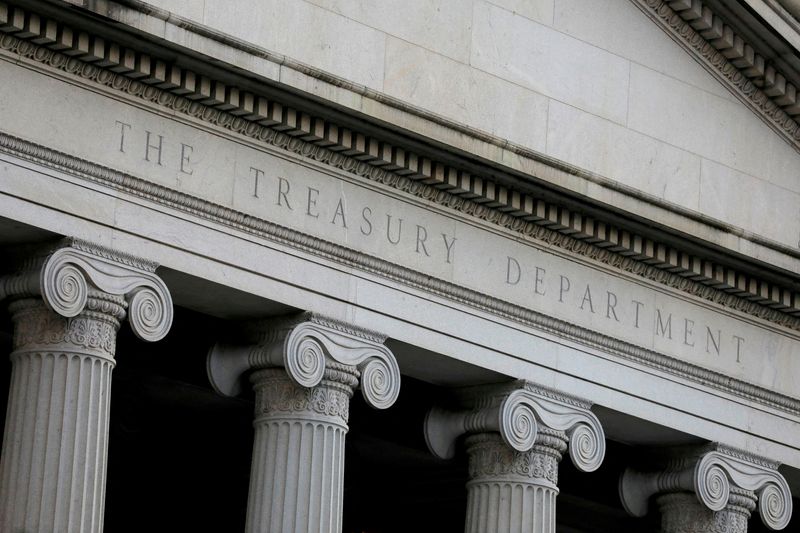By Michelle Price
WASHINGTON (Reuters) - The U.S. Securities and Exchange Commission (SEC) on Wednesday proposed draft rules to boost the resilience of the $24 trillion Treasury market, the world's largest bond market, which serves as a benchmark for dollar assets globally.
Here are the highlights of the proposal:
CLEARING HOUSE FOCUS
Instead of mandating broadly that all Treasury transactions be cleared, the proposal takes a more targeted approach. It aims to push more Treasury cash and repurchase agreement trades through clearing houses by changing the clearing houses rules so that its members are forced to clear not just their trades but their clients' trades too. Typically, clearing house members are big broker dealers and other well-capitalized trading firms which are also major Treasury market participants.
WHAT IS A CLEARING HOUSE?
Clearing houses are part of the market plumbing, facilitating the exchange of cash and securities. Instead of having thousands of bilateral trades between traders and investors, clearing houses sit in the middle of the market as the buyer to every seller and the seller to every buyer.
Clearing houses net out risk across the market and have strict collateral or 'margining' requirements to secure trades in the event either counterparty goes bust. In addition, clearing houses generally have other strict risk management requirements for managing defaults, which also helps reduce contagion and ensure the integrity of the market.
HOW DO THE NEW RULES WORK?
The proposal would require clearing houses in the Treasury market to require their members to clear both sides of all of their repo transactions and certain cash transactions.
That requirement aims to capture trades by the likes of hedge funds and principal trading firms that are not members of the clearing house. The new requirement would apply to participants serving as interdealer-brokers; government securities broker-dealers; hedge funds; and levered accounts held by broker-dealers.
CUSTOMER CLEARING
The SEC proposal also aims to create incentives for members to clear more trades by changing the rules around how clearing house members handle the margin they gather from clients.

Importantly, members would no longer be able to net their customers' margin against their own proprietary trading, a common practice that reduces the member's margin obligations to the clearing house.
Instead, the proposal would allow the broker dealer to pass the margin collected from customers on to the clearing house.